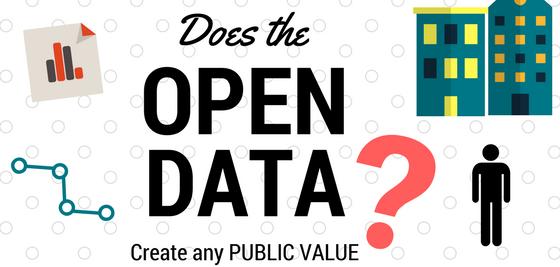Open Data do fight inequality and discrimination. If...
If they are the right data to answer the right questions, that is.

Already back in 2011, Mike Gurstein was worried because:
- “what these nerdy revolutionaries are pursuing is not, as with previous generations - justice, freedom, democracy - rather it is “openness” as in Open Data
- he saw no discussion of “who the ultimate beneficiaries of this openness would be, and what ultimate uses this open data was being designed towards”
The bad, or not-so-good news
Confirmation that Gurstein’s worries were concrete abound. Here are three examples, to give just a very quick, general idea of what the problems are:
- in 2014, affordable housing quotas in London got waived and the interests of residents trampled also thanks to missing or misdirected Open Data: housing negotiations results were “entirely down to the individual planning officer’s ability”
- across Africa, in 2018, “key datasets to support the advocacy objectives of women’s groups are missing, and barriers prevent women from using the data that is available”
- According to a report released in February 2018 main solutions for Sustainable Development Goal 10 (Reduced Inequalities) must include “making global supply chains more transparent [also to detect] labour, environmental or human rights violations”
On the other hand…
In the last decade, we have also seen many encouraging real-world examples that:
- “upending assumptions about who needs data and why” (and how to receive feedback from the same people), gives “a provocative [actually useful] direction for people creating social programs”, rather than making only “nerdy rivolutionaries” happy
- Open Data can supports justice and crime prevention. If you ask the right questions, that is, for example, “how did we choose to police these crimes, instead of other crimes?"
As usual, if one asks the wrong questions, the answers don’t matter

<u><em><strong>CAPTION:</strong>
<a href="/img/opendata-word-clouds.png" target="_blank">Quick! Find the missing words!</a>
</em></u>
The unsurprising conclusions are that, almost ten years after the beginning of the movement:
- in general, the positive potential of Open Data is like the future according to W. Gibson: “already there, just not evenly distributed”
- “the data problems of today can be traced to the social ordering practices of the 19TH CENTURY”. But that is no reason to not demand more Open Data, everywhere.
- Problems happen when the “nerdy” focus on Open Data as such “distracts from the real show, which is always about power (and/or money). The most important Open Data are those who shine light on powerful people" (including, I would say, showing how they stay powerful through structural discrimination)
I mean, have you noticed that in none of those “Open Data” word clouds above terms like inequality, equal opportunities or poverty are big enough to be visible?
Image source: image search for Open Data word clouds, and “Does the Open Data Create Any Public Value?"
Who writes this, why, and how to help
I am Marco Fioretti, tech writer and aspiring polymath doing human-digital research and popularization.
I do it because YOUR civil rights and the quality of YOUR life depend every year more on how software is used AROUND you.
To this end, I have already shared more than a million words on this blog, without any paywall or user tracking, and am sharing the next million through a newsletter, also without any paywall.
The more direct support I get, the more I can continue to inform for free parents, teachers, decision makers, and everybody else who should know more stuff like this. You can support me with paid subscriptions to my newsletter, donations via PayPal (mfioretti@nexaima.net) or LiberaPay, or in any of the other ways listed here.THANKS for your support!